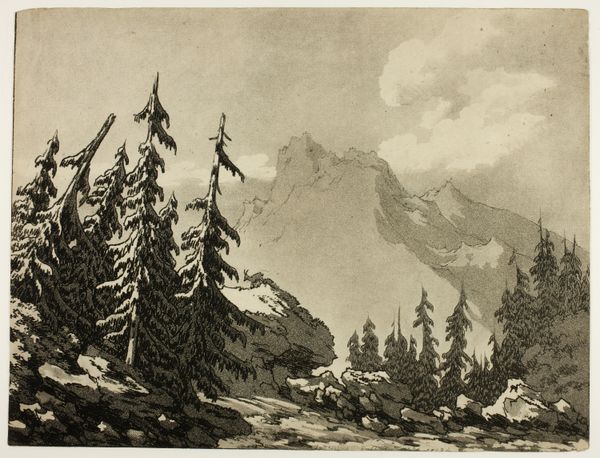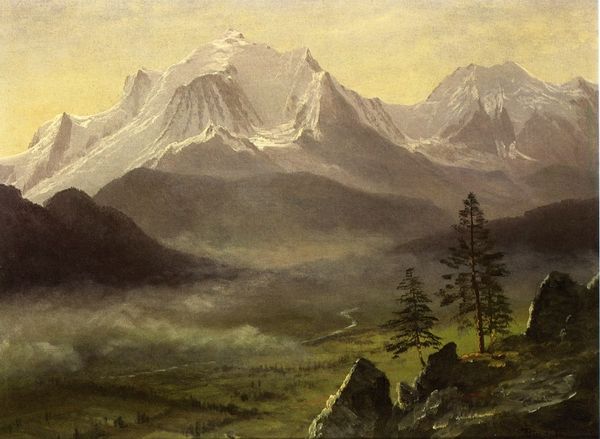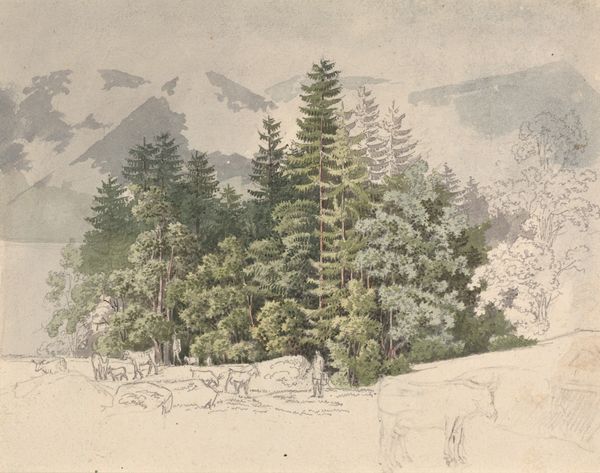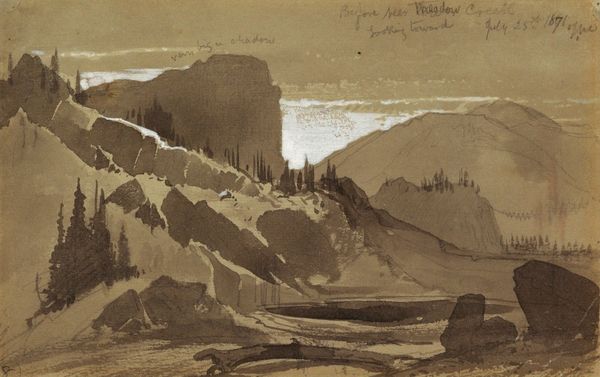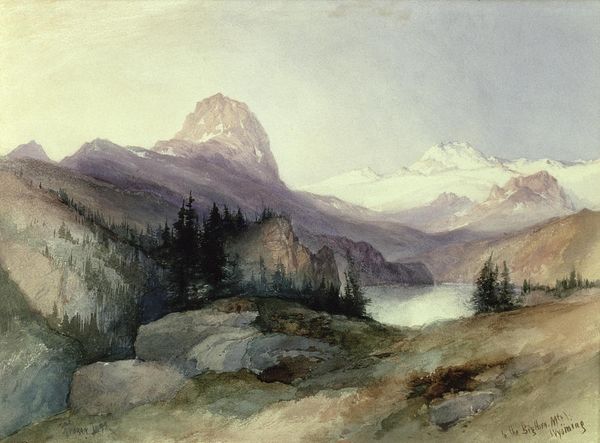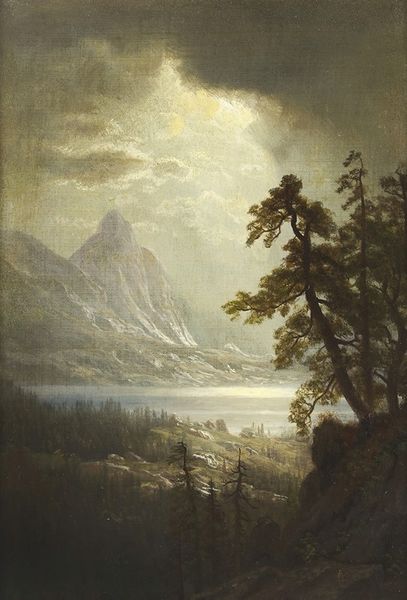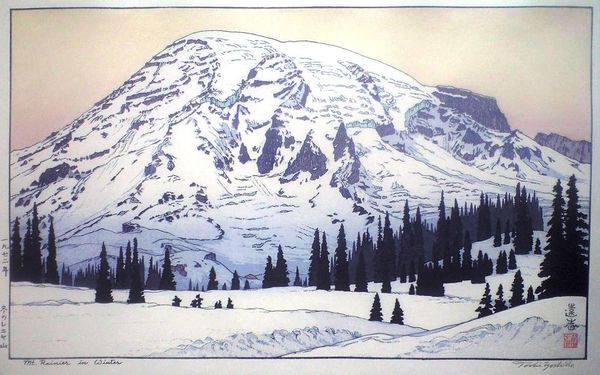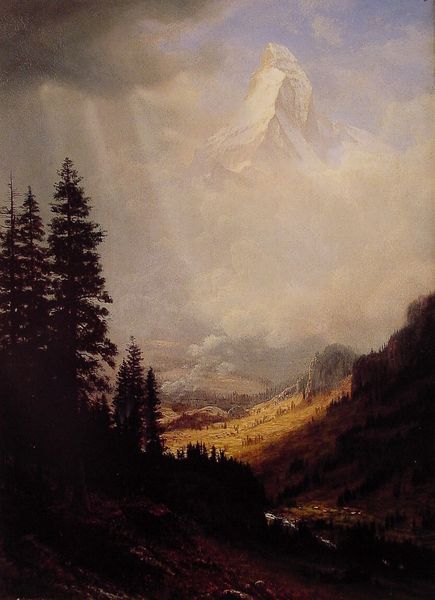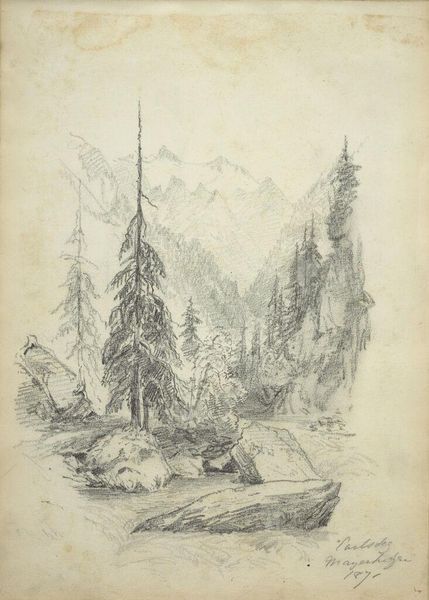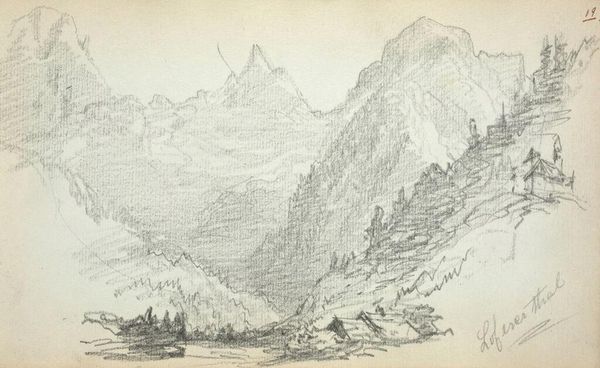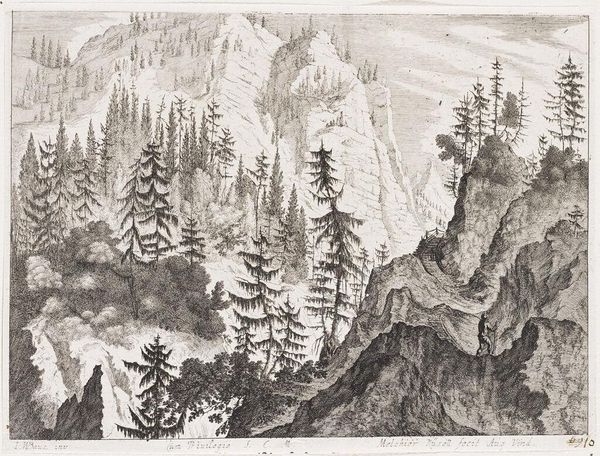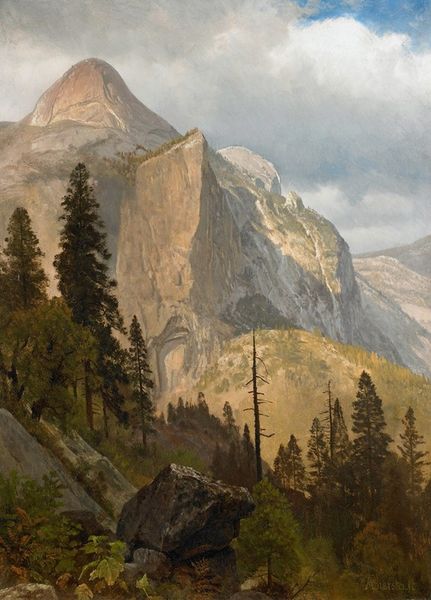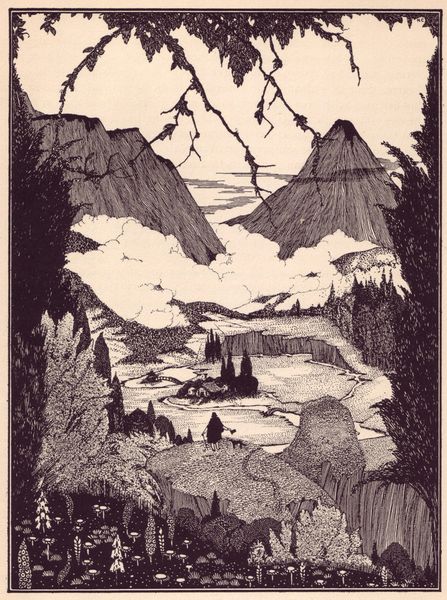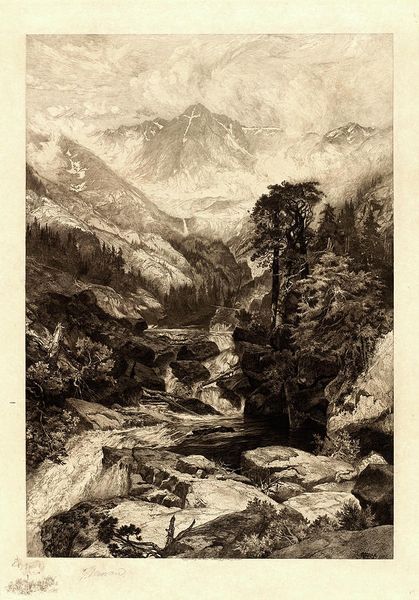
ink
tree
sky
lake
landscape
ink
mountain
Copyright: Werner Peiner,Fair Use
Curator: Here we have "Landscape at a Northern Italian Lake" by Werner Peiner. It appears to be rendered in ink. What are your initial thoughts on this scene? Editor: The landscape emanates a serene but somewhat melancholic air, doesn't it? The monochrome tones lend a timeless quality to this depiction, which reminds me of old landscape photography. Curator: It is interesting you note that, considering landscapes of the Italian lakes have been heavily romanticized in paintings, photographs, and early travel postcards through much of the modern era. How might the monochrome palette factor into this one? Editor: It evokes the Romantic era of the sublime and the picturesque, a familiar subject in Northern European landscape painting. There's a hint of foreboding in the clouded sky looming above the crisp depiction of the lake and mountains. The darker ink wash might symbolize a more solemn reflection upon nature’s grandeur. Curator: Peiner was active during a time of significant social upheaval. The landscape became a common ground for cultural identity and expressions of longing, particularly within movements like New Objectivity and later in post-war art. The landscape becomes less about idealizing nature and more a site of complex historical and cultural tensions. Editor: Absolutely. You can feel this complexity in the stark contrasts. It's as though the artist uses visual cues like dramatic lighting to engage with collective memory. Even the choice of ink washes to portray the architectural details of a distant lakeside house has purpose; the lake house itself is a recurring motif in Western art history, acting as both idyllic retreat and a symbol of something far less clear. Curator: It's also relevant to consider how Peiner's work intersected with political agendas of his time. Though landscapes often seem neutral, they carried ideological weight in Nazi Germany, sometimes used to reinforce nationalist sentiments. Editor: I agree; landscape art is so very rarely simply about nature itself. When we engage with a piece like this, we are seeing layer upon layer of historical context, cultural reference, and personal expression synthesized through symbolic imagery. Curator: It really opens a window into how artistic expressions often echo, and sometimes critique, the social narratives of their time. Editor: Precisely, allowing the familiar image of landscape to morph, revealing unexpected depths of cultural and historical significance.
Comments
No comments
Be the first to comment and join the conversation on the ultimate creative platform.
